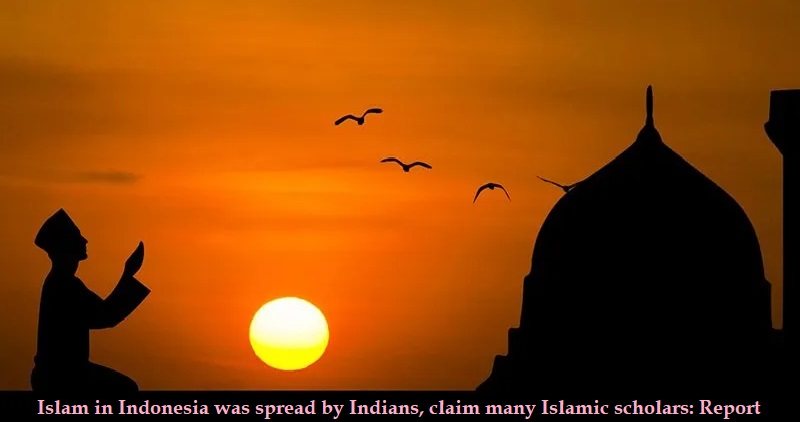
New Delhi: Many historians and Islamic scholars in Indonesia believe that Islam in Indonesia was spread by Indians and not Arabs, according to a report by the Indo-Islamic Heritage Center (IIHC) based in New Delhi. The IIHC report also says that ‘this is the reason that Indonesian Islam, like the one followed in India, believes in syncretism, tolerance and co-existence. People pray, fast and travel for Haj as piously as any Muslim should go and yet embrace Indonesian culture shared by Hindus and Buddhists’.
This belief is supported by evidence. Tombs like that of Sultan Malik al-Saleh, in Java and Sumatra, have striking similarities with the ones found in India’s Gujarat. Also, several practices of Gujarati Muslims are similar to those found among Indonesian Muslims, argued a well-known dutch scholar of Islam, Snouck Hurgronje. The Earliest Muslims to reach Sumatra were from Gujarat and Malabar, believe many medieval travellers. Also, the tombstone used at the grave of Malik al-Saleh, an Acehnese who established the first Muslim state of Samudera Pasai in the year 1267, is from Cambay in Gujarat.
Sufi missionaries from India’s Gujarat and Bengal went to Indonesia and played a significant part in the country. ‘Unlike Islam in the Middle East and India, Indonesia wasn’t conquered by force. The Sufis came not only as preceptors but as dealers and politicians who entered the courts of autocrats, the diggings of merchandisers, and the townlets of the country’, according to the IIHC report.In medieval times, merchants from India’s Western coasts also dealt with Java and Sumatra. A large number of merchants, rich nobility and the ruling class converted to Islam under their influence. The process, over the years, expanded the Muslim population in the archipelago.
Recently, India’s National Security Advisor Ajit Doval at an event at India Islamic Cultural Centre in New Delhi, said that India and Indonesia are both home to the world’s largest Islamic populations, Indonesia is the world’s largest Islamic country and India is home to the third largest Muslim population in the world. ‘Much like in India, Islam in Indonesia was spread by traders from present-day Kerala and Gujarat and Sufis from Bengal and Kashmir. This peaceful spread led to the development of a syncretic culture, where not only pre-Islamic religions flourished side by side, but age-old traditions and local customs greatly influenced religious practices’, the NSA said. ‘We may speak different languages, but we share a common desire for peace and harmony. Our dialogue today is a vital medium to help us achieve that objective’, he said.

Post Your Comments